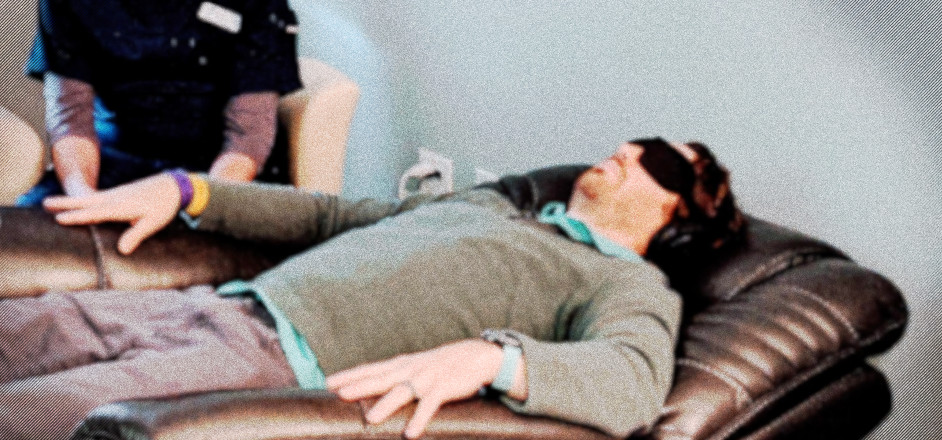Lower-income folks can now enter one of the strangest realms in the world — the ketamine k-hole — and have the government pay for it.
A forward-thinking chain of clinics called Klarisana now accepts medicaid for ketamine therapy at its locations in Austin, San Antonio, Westminster and Denver.
Medicaid is government-funded health insurance for low-income folks, and is the largest source of health coverage in the United States. Ketamine is a dissociative drug long used to kill pain during surgeries, vibe out at concerts, and escape the dull pain of modern life. It's increasingly showing promise as a treatment for depression, suicidal ideation, chronic pain and alcoholism — especially when combined with therapy.
Millions of Americans use antidepressants and opioids to treat sadness and pain, but both have awful side effects. So there's massive excitement about new evidence showing altered states of consciousness such as psychedelics and ketamine can heal. Mushrooms and other psychedelics are decriminalized in many places, including Denver. But ketamine is the only fully legal drug that delivers a truly altered state of consciousness.
So ketamine clinics are now springing up across the landscape. But ketamine is rarely covered by insurance and typically costs $400 to $800 per session, beaucoup bucks for folks who might be underemployed, pain-riddled, or with low verve. "And typically that's the part of the population that needs it the most," says Neil Haznar, Klarisana's executive director.
So it's a big development that a ketamine clinic is accepting medicaid patients, with co-pays as low as $2. It is one of the first times an altered state of consciousness has been accessible using government insurance. Since Klarisana began working with Medicaid, it's increased patient volume and allowed many more folks to come through, Haznar says.
 Debora Barker is a patient at Klarisana and says ketamine therapy gives her relief from depression and nerve pain. Photo by Reilly Capps
Debora Barker is a patient at Klarisana and says ketamine therapy gives her relief from depression and nerve pain. Photo by Reilly Capps
The experience of going to a ketamine clinic is way different from taking recreational ketamine, which is snorted off a key in a club bathroom with semi-strangers.
At Klarisana's Denver office, staffed by chipper millennials, a typical visit includes a meeting with a psychologist and a nurse who assess your problems. Then the treatment room has a deep, comfy leather chair with electric recline and lumbar support, a TV playing calming footage of naturescapes. An EMT takes your vitals, gives you an anti-nausea pill, and injects the drug.
High-dose ketamine is tough to describe, like explaining rugby to a marmot. But it's something like this: You feel yourself slide backward through the chair into a comfortable hole, like a child's fort made of couch cushions lined with black velvet. The visuals aren't bright and kaleidoscopic like a mushroom or DMT trip; it's grays, slates and dark reds. You may seem to float through dark rooms, like a frozen fish being shifted between stockroom freezers. It's hard to move, like you're covered in a weighted blanket, or Han Solo encased in carbonite.
You may wonder if you're dead; this is unlikely. Ketamine is safe. And an EMT attends you. For most, a k-hole is a calming experience. Normal worry that hounds us — "Why did I tell that edgy joke to that girl I barely know?!" — disappears. Worries gone. Pain gone.
 Klarisana now works with Medicaid to pay for ketamine therapy. Here, a patient at Klarisana is attended by Klarisana's Director of Mental Health Desmond Wallington. Photo credit: Reilly Capps
Klarisana now works with Medicaid to pay for ketamine therapy. Here, a patient at Klarisana is attended by Klarisana's Director of Mental Health Desmond Wallington. Photo credit: Reilly Capps
One hour later you're back in the room, clear headed. For reasons both medically explainable and beyond our current understanding, this trip helps a lot of people.
Debora Barker, 61, is a patient at Klarisana. Her husband died when she was a young woman, which occasioned serious depression that's been compounded since by a nerve disease called Charcot-Marie-Tooth that makes her limp. Barker tears up when talking about the ways ketamine therapy gives her relief. "There was always something dragging me back down," she says. "But that heavy weight, I don't have to carry it anymore. It's almost been like a miracle to me."
Another person who received ketamine treatment at Klarisana says it helped him to let go of old baggage; literally he threw out a bunch of books and clothes that had been cluttering his closet for years. "I just felt like it'd be ok to let them go," he says. "I feel lighter."
Whole families can be helped. "A lot of the time it's not the patient who notices the difference in their character it's the patients' relatives and friends who notice," says Haznar. "It's a very rewarding job."
And with an affordable option for folks, more people will be helped.




Leave a Reply